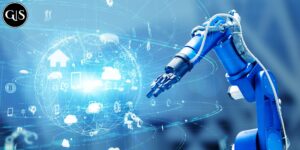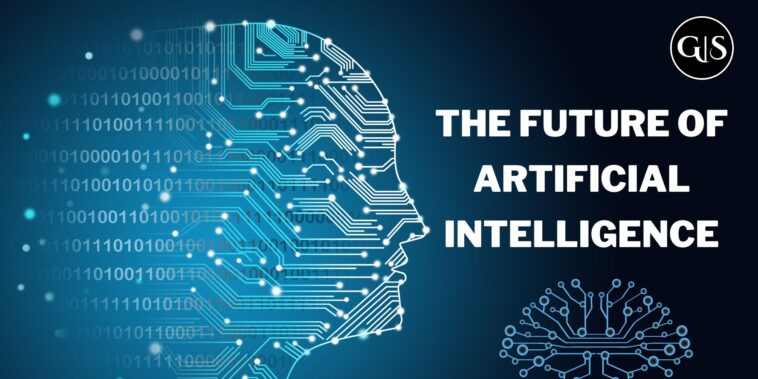Artificial Intelligence (AI) is a rapidly evolving field that has the potential to revolutionize multiple industries. From healthcare to finance, AI technology is already making a significant impact. But what is the future for AI? In this article, we will explore the innovations, impacts, and opportunities that lie ahead.
As advancements in AI continue to push boundaries, the possibilities seem endless. Innovations such as machine learning algorithms, natural language processing, and computer vision are leading the way towards more intelligent and autonomous systems. The ability of AI to analyze vast amounts of data and identify patterns is opening up new opportunities for businesses to optimize operations, improve decision making, and drive innovation.
However, with these opportunities come challenges and risks. Ethical considerations, job displacement, and data privacy are just a few of the concerns that need careful consideration as AI continues to evolve. It is crucial to strike a balance between technological advancements and societal needs, ensuring that AI benefits all stakeholders.
As we delve into the future of AI, we will explore the potential impact on various sectors, discuss emerging trends, and analyze the opportunities that lie ahead. Stay tuned to discover how AI is set to shape our world in the coming years.

History and evolution of AI
Artificial Intelligence (AI) has a rich and fascinating history that dates back to the mid-20th century. The concept of creating intelligent machines capable of mimicking human behavior and decision-making has captivated researchers and scientists for decades.
The foundations of AI were laid in the 1950s by such visionaries as Alan Turing, John McCarthy, and Marvin Minsky. Turing’s seminal work on the “Turing Test” in 1950 explored the idea of machine intelligence and sparked a new era of research and development in this field.
Over the years, AI has evolved from rule-based systems and expert systems to more advanced techniques like machine learning, deep learning, and natural language processing. The availability of vast amounts of data, coupled with the exponential growth in computing power and storage, has fueled the rapid advancements in AI technology.
In the 1990s and 2000s, breakthroughs in machine learning algorithms, such as the development of artificial neural networks, led to significant improvements in the ability of machines to recognize patterns, classify data, and make predictions. The rise of big data and the increasing accessibility of powerful computing resources have further accelerated the progress of AI, enabling the development of more sophisticated and intelligent systems.
Today, AI is pervasive in our daily lives, from virtual assistants like Siri and Alexa to personalized product recommendations and autonomous vehicles. The field of AI continues to evolve rapidly, with new applications and innovations emerging across various industries, transforming the way we live, work, and interact with technology.

Key innovations in AI technology
The field of Artificial Intelligence has had a huge range of innovations, each increasing the potential of what machines can do. From machine learning to natural language processing, these advancements are paving the way for more intelligent and versatile AI systems.
Probably the most prominent development in AI would be machine learning algorithms. These algorithms enable machines to learn from data, identify patterns, and make predictions without being explicitly programmed. This has led to breakthroughs in areas such as computer vision, speech recognition, and predictive analytics.
Another key innovation is the rise of deep learning, a subset of machine learning that utilizes artificial neural networks to process and analyze complex data. Deep learning algorithms have demonstrated remarkable capabilities in areas like image recognition, natural language processing, and decision-making. The ability of deep learning models to learn and extract features from large datasets has opened up new possibilities for AI applications.
Another area of AI that has developed at a very fast rate is in the sphere of natural language processing. NLP allows machines to understand, interpret, and generate human language, enabling interactions between humans and machines through text or speech. This technology has enabled the development of intelligent virtual assistants, chatbots, and language translation services, revolutionizing the way we communicate with technology.
Advancements in computer vision, the field of AI that enables machines to interpret and understand digital images and videos, have also been transformative. Through techniques like object detection, image classification, and semantic segmentation, AI systems can now perceive and analyze the visual world with remarkable accuracy, paving the way for applications in Domains include autonomous vehicles, medical diagnostics, and surveillance.
These key innovations, along with emerging technologies like reinforcement learning, generative adversarial networks (GANs), and quantum computing, are shaping the future of AI and driving the development of more intelligent, adaptive, and autonomous systems. As the field continues to evolve, we can expect to see even more groundbreaking advancements that will redefine the way we interact with and leverage technology.

Impacts of AI on industries and society
The impact of Artificial Intelligence (AI) on various industries and society as a whole is profound and far-reaching. As AI technology continues to advance, it is transforming the way we live, work, and interact with the world around us.
In the healthcare industry, AI is revolutionizing patient care and medical research. AI-powered systems can analyze vast amounts of medical data, including patient records, diagnostic images, and research studies, to assist in early disease detection, personalized treatment recommendations, and drug discovery. AI-driven medical imaging analysis, for example, has shown remarkable accuracy in detecting conditions like cancer, heart disease, and neurological disorders, often outperforming human experts.
The financial sector has also embraced AI, with applications ranging from fraud detection and risk management to algorithmic trading and personalized investment recommendations. AI algorithms can analyze market data, identify patterns, and make informed decisions at a much faster pace than human traders, leading to increased efficiency and profitability. Additionally, AI-powered chatbots and virtual assistants are enhancing customer service and streamlining financial transactions for banks and financial institutions.
In the transportation industry, AI is paving the way for autonomous vehicles, which have the potential to revolutionize the way we move around. Self-driving cars, powered by advanced computer vision, sensor fusion, and deep learning algorithms, can navigate roads, detect obstacles, and make real-time decisions, potentially improving safety, reducing traffic congestion, and increasing accessibility for those who cannot drive.
The impact of AI extends beyond specific industries, as it is also transforming the way we interact with technology in our everyday lives. AI-powered virtual assistants like Alexa, Siri, and Google Assistant can understand natural language, answer questions, and perform a wide range of tasks, making our lives more convenient and efficient. Smart home technologies, powered by AI, can automate and optimize energy usage, security, and home appliances, enhancing our quality of life.
However, the impact of AI is not without its challenges. As AI systems become more advanced and autonomous, there are concerns about job displacement, data privacy, and the potential for bias and discrimination in AI-driven decision-making. Addressing these ethical and societal implications is crucial as we continue to embrace the transformative power of AI.

Opportunities and challenges in the AI industry
The rapid advancements in Artificial Intelligence (AI) have opened up a wealth of opportunities, but they have also brought about significant challenges that need to be addressed. As the AI industry continues to evolve, it is crucial to navigate these opportunities and challenges with care and foresight.
One of the primary opportunities in the AI industry is the potential to drive innovation and enhance productivity across various sectors. AI-powered automation and decision-making capabilities can streamline processes, optimize resource allocation, and improve overall efficiency in industries such as healthcare, finance, manufacturing, and transportation. This can lead to cost savings, increased productivity, and the ability to tackle complex problems more effectively.
Another significant opportunity lies in the ability of AI to unlock new frontiers of scientific discovery and technological advancement. AI algorithms can analyze vast amounts of data, identify patterns, and generate insights that can accelerate research and development in fields like material science, biotechnology, and renewable energy. This can lead to breakthroughs that have the potential to address global challenges and improve the human condition.
The democratization of AI is another exciting opportunity, as the increasing availability of AI tools and platforms empowers individuals, small businesses, and startups to leverage the power of this technology. This democratization can foster innovation, entrepreneurship, and the development of novel AI-driven solutions that cater to diverse needs and preferences.
However, the AI industry also faces several challenges that need to be addressed. One of the primary concerns is the potential for job displacement as AI-powered automation and decision-making systems become more prevalent. This can lead to social and economic disruptions, and it is crucial to develop strategies for reskilling and reintegrating displaced workers into the workforce.
Another challenge would be the issue of data privacy and security. As AI systems rely on vast amounts of data to function effectively, there are concerns about the ethical and responsible use of this data, particularly in sensitive domains like healthcare and finance. Ensuring data privacy, security, and transparency in AI-driven systems is essential to build trust and maintain public confidence.
Ethical considerations around the development and deployment of AI also pose significant challenges. Questions around bias, fairness, and accountability in AI-driven decision-making processes need to be addressed to ensure that these systems do not perpetuate or amplify societal biases and inequalities. Developing robust ethical frameworks and governance mechanisms for AI is crucial to mitigate these risks.
As the AI industry continues to evolve, navigating these opportunities and challenges will require a collaborative effort among policymakers, industry leaders, researchers, and the public. By striking a balance between innovation and responsible development, the AI industry can harness its full potential to drive progress and improve the lives of people around the world.

Ethical considerations in AI development and deployment
The rapid advancements in Artificial Intelligence (AI) have raised significant ethical concerns that need to be addressed as the technology continues to evolve and become more pervasive in our lives. It is essential that these systems be developed and deployed responsibly and ethically, as AI systems are more and more becoming autonomous and influential.
One of the primary ethical considerations in AI is the issue of bias and fairness. AI algorithms are trained on data that can reflect societal biases and inequalities, which can then be perpetuated and amplified in the decision-making processes of these systems. This might have further discriminatory effects in areas of employment, lending, and criminal justice. Addressing algorithmic bias requires a concerted effort to ensure that AI systems are trained on diverse and representative data, and that their decision-making processes are transparent and accountable.
Another ethical concern is the way AI impacts jobs and the workforce. As AI-powered automation and decision-making systems become more prevalent, there is a risk of job displacement, particularly for tasks that can be easily automated. This can exacerbate economic and social inequalities, and it is essential to develop strategies for reskilling and reintegrating displaced workers, as well as exploring new models of work and income distribution.
The issue of privacy and data protection is also a significant ethical consideration in the development and deployment of AI. AI systems often rely on vast amounts of personal data to function effectively, and there are concerns about the collection, storage, and use of this data without the informed consent of individuals. Ensuring data privacy, security, and transparency in AI-driven systems is crucial to build public trust and maintain individual autonomy.
Ethical considerations also extend to the potential for AI to be used in malicious or harmful ways, such as in the development of autonomous weapons or the spread of misinformation and fake content. Developing robust governance frameworks and ethical guidelines for the development and deployment of AI is essential to mitigate these risks and ensure that the technology is used for the betterment of society.
Addressing these ethical concerns requires a collaborative effort among policymakers, industry leaders, researchers, and the public. This will involve the design of ethical frameworks, the construction of regulatory oversight, and the encoding of ethical principles into the design and deployment of AI systems. By prioritizing ethical considerations, we can harness the transformative potential of AI while ensuring that it aligns with our values and benefits all members of society.

AI applications in different sectors – healthcare, finance, transportation, etc.
Artificial Intelligence (AI) has found applications in a wide range of industries, transforming the way we approach various challenges and opportunities. From healthcare to finance, transportation to manufacturing, the impact of AI is far-reaching and continues to evolve.
In the healthcare sector, AI is revolutionizing patient care and medical research. AI-powered systems can analyze vast amounts of medical data, including patient records, diagnostic images, and research studies, to assist in early disease detection, personalized treatment recommendations, and drug discovery. AI-driven medical imaging analysis, for example, has shown remarkable accuracy in detecting conditions like cancer, heart disease, and neurological disorders, often outperforming human experts. Additionally, AI-powered chatbots and virtual assistants are enhancing patient engagement and streamlining administrative tasks in healthcare settings.
The financial sector has also embraced the power of AI, with applications ranging from fraud detection and risk management to algorithmic trading and personalized investment recommendations. AI algorithms process a huge volume of market information and extract patterns to make decisions much faster and wiser than any human trader. Most importantly, this speed comes in handy to support efficiency and profitability. The AI-powered chatbots and virtual assistants are also providing improved customer service and smooth processing of financial transactions for banks and financial institutions.
In the transportation industry, AI is paving the way for autonomous vehicles, which have the potential to revolutionize the way we move around. Self-driving cars, powered by advanced computer vision, sensor fusion, and deep learning algorithms, can navigate roads, detect obstacles, and make real-time decisions, potentially improving safety, reducing traffic congestion, and increasing accessibility for those who cannot drive. AI is also being used in traffic management systems, optimizing routes and reducing congestion, as well as in the development of smart cities that integrate AI-powered infrastructure and transportation solutions.
The manufacturing sector has also benefited from the integration of AI, with applications ranging from predictive maintenance and quality control to supply chain optimization and robotic automation. AI-powered systems can analyze sensor data, identify patterns, and predict potential equipment failures, enabling proactive maintenance and reducing downtime. Additionally, AI-driven robotics and automation are enhancing productivity, precision, and safety in manufacturing environments.
In the field of agriculture, AI is transforming the way we approach food production and resource management. AI-powered systems can analyze soil and weather data, optimize irrigation and fertilization, and detect pests and diseases, helping farmers increase yields and improve sustainability. AI-driven precision agriculture techniques are also enabling more efficient use of resources, such as water and fertilizers, contributing to more sustainable food production.
These are just a few examples of the diverse applications of AI across various industries. As the technology continues to evolve, we can expect to see even more transformative use cases emerge, further enhancing our ability to solve complex problems, improve efficiency, and drive innovation in various sectors of the economy and society.

AI in everyday life – virtual assistants, smart homes, etc.
Artificial Intelligence (AI) has not only transformed industries but has also become deeply integrated into our everyday lives, revolutionizing the way we interact with technology and our surroundings. From virtual assistants to smart home technologies, AI is making our lives more convenient, efficient, and connected.
One of the most prominent examples of AI in our everyday lives is the rise of virtual assistants like Alexa, Siri, and Google Assistant. These AI-powered digital companions can understand natural language, answer questions, and perform a wide range of tasks, such as setting reminders, playing music, and controlling smart home devices. Virtual assistants have become an integral part of many households, providing hands-free convenience and personalized assistance to users.
Smart home technologies, powered by AI, are also transforming the way we interact with our living spaces. From energy and security management to controlling your appliances to home entertainment, AI-enabled devices and systems can take over the automation and optimization of aspects related to our homes. Smart thermostats, for instance, can learn our preferences and adjust the temperature accordingly, while smart lighting systems can adapt to our daily routines and preferences, enhancing our comfort and reducing energy consumption.
Beyond the home, AI is also permeating our daily lives through various consumer applications and services. AI-powered personal fitness trackers and wellness apps can monitor our physical activity, sleep patterns, and vital signs, providing personalized insights and recommendations to improve our overall health and well-being. Similarly, AI-driven content recommendations on streaming platforms and social media platforms can help us discover new and relevant content, catering to our individual interests and preferences.
The integration of AI into our everyday lives also extends to the way we shop and make purchasing decisions. E-commerce platforms and digital marketplaces are leveraging AI algorithms to offer personalized product recommendations, optimize pricing and inventory management, and enhance the overall shopping experience. AI-powered chatbots and virtual assistants are also becoming more prevalent in customer service, providing instant and tailored support to consumers.
This tech will continue to surprise us by how we will see an increasingly seamless integration of AI into our lives with the passing of time. From autonomous vehicles that transform our commutes to AI-powered home appliances that anticipate our needs, the future of AI in everyday life holds the promise of increased convenience, efficiency, and personalization. However, it is crucial to address the ethical considerations and privacy concerns that come with the widespread adoption of AI in our personal and domestic spheres.

Future trends and predictions in AI
As Artificial Intelligence (AI) continues to evolve, the future of this transformative technology holds immense promise and potential. While the advancements in AI have been remarkable, the field is poised to witness even more groundbreaking innovations and transformative applications in the years to come.
One of the key trends that is expected to shape the future of AI is the continued advancements in machine learning and deep learning algorithms. As these algorithms become more sophisticated and efficient, they will enable AI systems to learn and adapt at an accelerated pace, leading to breakthroughs in areas such as natural language processing, computer vision, and predictive analytics. This will pave the way for more intelligent and autonomous systems that can tackle increasingly complex problems across various industries.
Another emerging trend in the AI landscape is the rise of hybrid intelligence, which combines the strengths of human intelligence and machine intelligence. This synergistic approach will enable AI systems to collaborate more seamlessly with humans, leveraging the unique capabilities of both to solve problems and drive innovation. This collaboration will be particularly valuable in fields like healthcare, where AI can assist human experts in making more informed decisions and delivering personalized care.
The integration of AI with other emerging technologies, such as the Internet of Things (IoT), quantum computing, and blockchain, is also expected to be a significant trend in the future. The convergence of these technologies will enable the development of more connected, secure, and intelligent systems that can process and analyze vast amounts of data in real-time.

At Gizmo Sprout, we’re dedicated to exploring and explaining the latest trends in technology. Stay tuned for more insightful articles on AI, BI, and other cutting-edge technologies.


9 Comments
Leave a Reply2 Pings & Trackbacks
Pingback:Artificial Intelligence Job Description: Roles and Responsibilities – Tk Creationz
Pingback:How Technology Companies in Philadelphia Drive Innovation – Tk Creationz